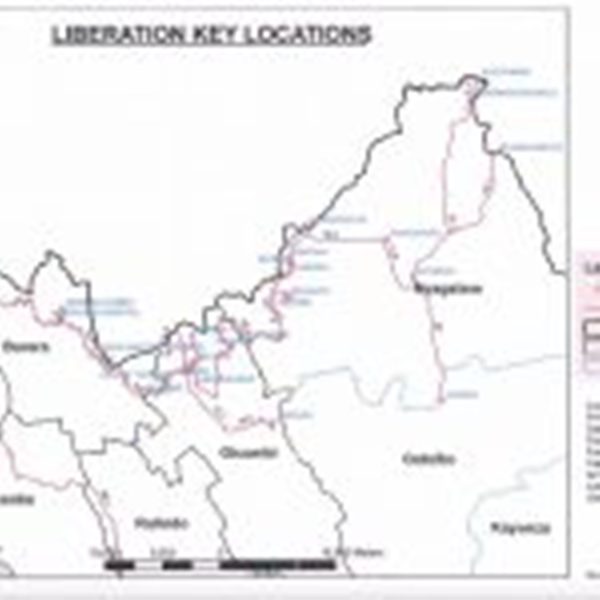
Kigali: RDB (Rwanda Development Board), in partnership with the Ministry of Defence, launched the Liberation History Tourism Trail with the inaugural ‘Walk to Stop Genocide’.
The Walk to Stop Genocide is a 90 kilometer four-day trek from Mulindi, Northern Province to Kigali starting on 30, June and ending on 4, July. The annual event aims to educate both local and foreign tourists on Rwanda’s liberation struggle and history.
A 25-person group consisting of representatives from the Ministry of Defence, Institute of National Museums, Ministry of Sports and Culture, Chancellery for Heroes, Rwanda Academy of Culture and Languages, Chamber of Tourism, tourism students and local mediaformally launched the Walk.
They commenced the trail on Monday at the National Liberation Park Museum, also known as ‘Umurindi w’intwari’, in Mulindi, Gicumbi District. The participants are then trekking from Bwisige to Rutare and Bumbogo and will finally arriving in Kigali on Liberation Day.
The participants, who are sleeping in campsites, will also enjoy a cultural celebration(igitaramo) every evening that consist of cultural dances as well as the opportunity to listen to speakers who participated in the War of
National Liberation.
The Liberation History Tourism Trail
The 120-kilometer Liberation History Tourism Trail, a collection of sites and trails in 29 sites in six districts that were significant in the War on National Liberation that commenced in 1, October 1990 and ended on 4, July 1994, will be open to the public from August, 2019.
Speaking on the new tourism product the RDB Chief Executive Officer, Clare Akamanzi, said: “The Liberation History Tourism Trail has always been a potential revenue earner for the industry and we have held a number of stakeholder meetings with the Ministry of Defense and others on identifying the 29 sites that are going to be part of the trail. We expect that through this product tourists, both local and foreign, will learn more about the liberation struggle that started before October 1990 and ended with the Rwanda Patriotic Army putting an end to the 1994 Genocide Against the Tutsi. In addition to that, it will diversify our tourism offerings and revenues and provide more employment opportunities to people working in the sites.” (Fin)
